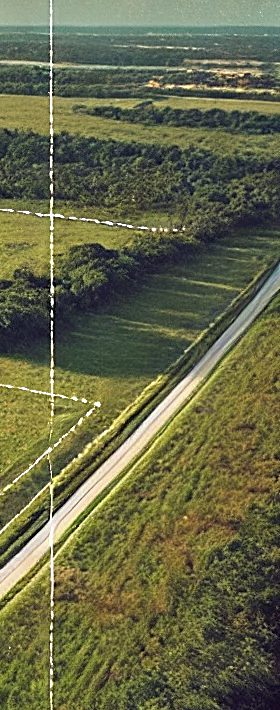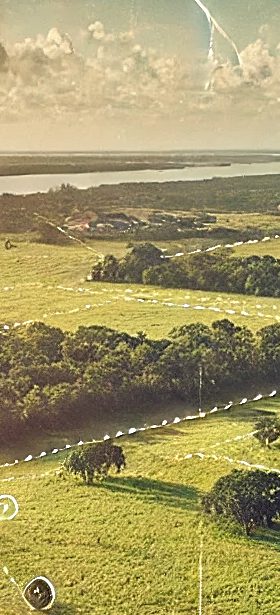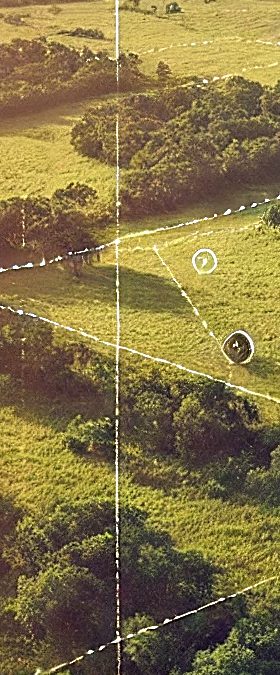
How to Subdivide Land in Florida: A Complete Guide
Thinking about subdividing your land in Florida? Maybe you’re eyeing a tidy profit, or perhaps you’re thinking of breaking off a little slice of paradise for family. Either way, subdividing land is a strategic move that can turn one big chunk of property into several smaller ones, giving you more flexibility and, hopefully, more cash in your pocket. But before you break out the survey maps and plat your masterpiece, let’s dive into the ins and outs of how to subdivide land in the Sunshine State. By the way, did you know that Florida is home to over 47,000 square miles of land? Plenty of room for those subdivisions!

What Does It Mean to Subdivide Land in FL?
In its simplest form, subdividing land means splitting a large parcel into smaller, legally distinct lots. Think of it like cutting a pie into individual slices—except each slice might have its own zoning requirements, utility access, and building potential. You can’t just chop it up willy-nilly; there are rules (because, of course, there are rules). The goal is to create new parcels that are legal, marketable, and developable. And Florida, with its mix of urban and rural land, offers a prime landscape for subdividing—if you know what you’re doing. Fun fact: the number of new residential subdivisions in Florida has grown by 6% in the past two years, thanks to increased demand for housing!
Benefits of Subdividing Land in Florida
Subdividing your land can be a pretty sweet deal, especially in a state like Florida where demand for smaller, buildable lots is on the rise. Whether you’re looking to maximize the value of your property, create more flexibility in land use, or simply make a profit by selling multiple lots, subdividing opens up a world of opportunity. Not only does it increase your property’s marketability, but it also gives you the chance to tailor portions of the land to different types of buyers—from families looking to build a home to developers planning new projects. Here are just a few benefits you can expect when subdividing your Florida land:
Increased Property Value
It’s no secret that sometimes the sum of the parts is worth more than the whole. By splitting up your land, you could increase its overall value, especially if the new lots are more attractive to buyers. In areas with high demand, like Miami-Dade County, subdividing can increase land value by as much as 15%. Not bad for just slicing things up, right?
Flexibility in Land Use
You might want to sell a portion, keep some for yourself, or even build a family compound. Subdividing land gives you the flexibility to do any (or all) of the above. Imagine keeping that quiet back parcel for a future vacation home while selling off the rest for a nice profit.
Potential for Profit
In 2023, Florida’s median home value rose by over 9%, outpacing the national average. Imagine subdividing a big parcel of land, selling off smaller lots, and tapping into that property boom. The potential to make a profit is there, especially if you do it right. A well-planned subdivision can add significant value, especially in Florida’s real estate market, which is expected to grow another 5-7% in the next year.
Key Requirements for Subdividing Land in Florida
Florida’s not exactly the wild west—there are plenty of rules when it comes to subdividing land, and they can vary significantly by county. Whether you own land in a bustling urban area or a quiet rural stretch, you’ll need to navigate local zoning regulations, utility access, and environmental restrictions. Before you get started, it’s essential to understand the specific requirements for subdividing your land, as missing even one step could lead to costly delays or outright rejection of your plan. Let’s take a look at the key requirements every landowner should know before breaking ground.
Local Zoning Regulations
First things first: zoning. Florida counties have different rules, and these regulations determine what can be built, how much land is required for each lot, and what activities are allowed. Is your land zoned for residential use? Commercial? Agricultural? Get this wrong, and your subdivision dreams could quickly turn into a bureaucratic nightmare. In Palm Beach County, for example, minimum lot sizes vary from 5,000 square feet for residential to 10 acres for agricultural zoning!
Lot Size Minimums
One size does not fit all in the world of land subdivision. Most counties in Florida have minimum lot size requirements, which can range from half an acre to several acres, depending on the zoning. The average minimum lot size for residential zoning in Florida is around 7,500 square feet, but it can be larger in more rural areas.
Utility Access and Infrastructure
If you think you can subdivide a plot of land without considering utilities, think again. Your new lots will need access to water, electricity, and roads. Some counties might require you to build new roads or extend utility lines—cha-ching. In some rural counties, you could be looking at a $10,000 to $50,000 investment just to get utilities set up for your new parcels.
Environmental and Conservation Considerations
Ah, Florida—the land of swamps, gators, and protected species. Environmental regulations are a huge part of subdividing land, especially if your property borders wetlands or conservation areas. Make sure you’re not infringing on protected spaces, or you might find yourself tied up in legal red tape. For instance, in Broward County, any subdivision near a wetland area requires a comprehensive environmental impact study.

Steps to Subdivide Land in Florida
Ready to start turning your large property into smaller, more marketable lots? Subdividing land might sound complicated, but with the right guidance, you can navigate the process smoothly and efficiently. From researching local regulations to hiring a professional surveyor and submitting your plans for approval, each step is crucial to ensuring your subdivision project goes off without a hitch. Let’s break down the entire process step by step, so you’ll know exactly what to expect and how to get started. Let’s break it down:
1. Research Local Land Use Laws
Before you even think about hiring a surveyor, you’ve got to do your homework. Contact your local planning and zoning department to learn the specific requirements for your area. Zoning maps, land use plans, and comprehensive plans are your new best friends. Fun tip: the average land use application takes around 90 days to be approved in Florida, so be sure to plan ahead.
2. Hire a Land Surveyor
A professional surveyor will map out the exact boundaries of your property, identify easements, and help create a subdivision plan that complies with local laws. This isn’t a DIY job—you’ll need the pros here. And expect to pay anywhere from $2,000 to $10,000 depending on your property’s size and location.
3. Develop a Subdivision Plan
Your surveyor will help you draft a detailed subdivision plan, which will outline the lot sizes, road access, and any necessary infrastructure improvements. This plan is crucial because the local planning commission will evaluate it for compliance.
4. Submit Your Plan for Approval
Once your plan is polished, it’s time to submit it to the local government for approval. Be patient—this can take a few months, and you might need to make adjustments based on feedback from the planning commission. According to recent data, the average approval time for subdivision plans in Florida is 120 days.
5. Meeting Requirements for Utilities and Infrastructure
You’ll need to ensure that each new lot has access to necessary utilities. This might mean extending power lines, installing water meters, or even building new roads. In some cases, the cost of infrastructure could exceed $100,000 for a large subdivision, so make sure your budget is ready for it!
6. Recording the Subdivision with Local Authorities
Finally, once your subdivision plan is approved and all the infrastructure is in place, you’ll need to officially record the new lots with the county. This step makes your subdivision legal, allowing you to sell the individual parcels. Without this, the lots don’t officially exist in the eyes of the law.
Costs Involved in Subdividing Land in Florida
Subdividing land isn’t cheap, and it’s important to know what you’re getting into before starting the process. From the initial surveys to the necessary infrastructure upgrades, the costs can add up quickly. Fees can vary based on your property’s location, the complexity of the subdivision, and whether additional work like road access or utility installations is needed. On top of this, don’t forget the expenses for legal and engineering services, application fees, and potential environmental assessments. Here are the key costs you should anticipate:
Surveyor Fees
Hiring a surveyor to map out your land can cost between $2,000 and $10,000, depending on the size and complexity of the property. Larger parcels or those with challenging terrain may require more detailed work, increasing the fees. It’s an essential step to ensure the boundaries are accurate and clear before moving forward with your subdivision.
Legal Fees
Working with a real estate attorney will cost around $1,500 to $3,000, depending on the complexity of your project. They will help you navigate zoning laws and ensure all paperwork is filed correctly. These fees are crucial to avoid potential legal issues that could delay your subdivision.
Utility & Infrastructure Costs
Extending utilities like water, electricity, and sewer systems, as well as building new roads, can be one of the largest expenses in the subdivision process. Costs can range from $50,000 to $100,000 or more, particularly if you’re developing land in a rural or undeveloped area. These expenses are necessary to make the newly created lots functional and attractive to buyers.
Approval Fees
Local governments typically charge between $500 and $5,000 to review and approve your subdivision plan. This fee covers the cost of checking your proposal against zoning laws and environmental regulations. The amount varies based on the size and complexity of your project and the county you’re working with.

Common Challenges in Subdividing Land in Florida
You didn’t think this would be easy, did you? While subdividing your land can unlock tremendous value, it’s not without its hurdles. From navigating local zoning laws to securing necessary approvals, there are plenty of opportunities for things to go sideways. Environmental regulations, utility access issues, and neighborhood opposition can also complicate the process. Add in the bureaucracy of public hearings and dealing with unexpected delays, and you’ve got a recipe for frustration. Let’s explore some of the most common challenges that landowners face when subdividing their property in Florida:
Zoning Restrictions
Zoning laws are probably the biggest hurdle you’ll face. If your land isn’t zoned for smaller lots, you might have to apply for a zoning change, which can be a long and painful process. In 2022 alone, over 30% of zoning change requests in Florida were delayed due to local planning issues.
Environmental Regulations
Florida’s rich ecosystem comes with strict environmental regulations. You’ll need to make sure your subdivision doesn’t disrupt wetlands or protected areas, or you could face hefty fines—or worse. For instance, the state levied over $1.5 million in fines related to environmental violations in 2021.
Approval Delays
Bureaucracy takes time. Don’t be surprised if your subdivision plan sits on a desk for a few months waiting for approval. In some counties, like Orange County, the average wait time can be up to 6 months.
Infrastructure Costs
If your land is in a rural area, getting utilities and roads out to your new lots can be an expensive (and sometimes insurmountable) challenge. Expect costs to rise significantly if you’re developing land in Florida’s more remote areas.
Skip the Hassle: Sell Your Land to Bubba Land Company
Let’s be honest—subdividing land is a complicated, time-consuming process. From navigating zoning laws to paying costly fees for surveys and permits, the hurdles just keep coming. Not to mention, once your land is subdivided, you still have to market each lot, deal with potential buyers, and hope for a smooth closing. Sounds exhausting, right?
Why not skip all that and sell your land directly to Bubba Land Company? Here’s why working with us is a better option:
- No Costly Fees: When you sell to Bubba Land, you avoid all the Realtor fees, closing costs, and survey fees involved in subdividing. Keep more cash in your pocket instead of paying for legal and engineering services.
- Fast & Simple Process: Subdividing can take 6-12 months or longer, while selling to us takes a fraction of the time. We make direct offers and close quickly, so you can avoid months of waiting and uncertainty.
- Immediate Cash Offers: Why wait for multiple buyers when you can get a cash offer right now? Forget about the hassle of listing your land or showing it to buyers—we’ll take care of everything.
- Avoid Legal Pitfalls: The subdivision process involves zoning laws, environmental regulations, and even public hearings. Instead of getting bogged down in legal paperwork, sell to Bubba Land and let us handle the complexities.
- Sell As-Is: Whether your land is undeveloped, in a rural area, or comes with issues like utility access, we’ll buy it as-is. No need to spend money or time on costly improvements.
At Bubba Land Company, we specialize in providing a seamless, stress-free experience for landowners like you. Don’t spend months dealing with the complexities of subdividing land—sell directly to us and move on with your life faster. We’re here to give you a fair, straightforward offer without the headaches.
Conclusion on Subdividing Land in Florida
Subdividing land in Florida can be a rewarding venture, but it’s not without its challenges. From navigating local zoning laws to dealing with costly surveys and infrastructure requirements, there are plenty of steps involved before you can transform your property into smaller lots. However, with careful planning, the right professionals by your side, and a clear understanding of the costs and regulations, subdividing can unlock tremendous value in your land. Whether you’re aiming to sell individual parcels, develop new homes, or simply increase the marketability of your property, the process can offer significant financial rewards.
If all the hurdles seem overwhelming, remember there’s always the option to sell your land to a buyer like Bubba Land Company—saving you time, money, and effort. Whether you choose to subdivide or sell, understanding the process is the first step toward making the best decision for your property.
Frequently Asked Questions (FAQs)

1. How Do I Start Subdividing Land in Florida?
To begin subdividing land in Florida, the first step is to research your local zoning regulations. Contact your local planning department to check if your property qualifies for subdivision and gather any specific requirements.
2. How Long Does It Take To Subdivide Land in Florida?
On average, the subdivision process in Florida takes between 6 to 12 months, depending on the complexity and size of the project. Simpler subdivisions, like splitting one lot into two, can take less time, while larger or more complicated projects can take up to 18 months.
3. How Much Does It Cost to Subdivide Land in Florida?
The cost to subdivide land in Florida can range from $2,000 to $10,000 depending on factors like surveying fees, engineering design, and local permitting. Additional infrastructure improvements, like road or utility extensions, can significantly increase costs.
4. Do I Need a Permit to Subdivide Land in Florida?
Yes, you need to submit a subdivision application to your local planning department. The process involves submitting a plat map, paying application fees, and undergoing a review, which may include public hearings.
5. Can I Subdivide Land With a Mortgage on It in Florida?
Yes, you can subdivide land that has a mortgage, but you’ll need approval from your lender first. The lender may have specific requirements before allowing the subdivision to proceed.

Bubba Peek is an experienced real estate investor focused on land acquisition. He holds a Bachelor’s in Finance and a Master’s in Real Estate (MSRE) from the University of Florida, along with the prestigious Certified Commercial Investment Member (CCIM) Designation, held by only six percent of real estate professionals. With over a decade of experience, Bubba blends financial expertise and market insight to deliver outstanding results. As founder of Bubba Land Company, he’s known for offering landowners efficient, hassle-free sales solutions.